
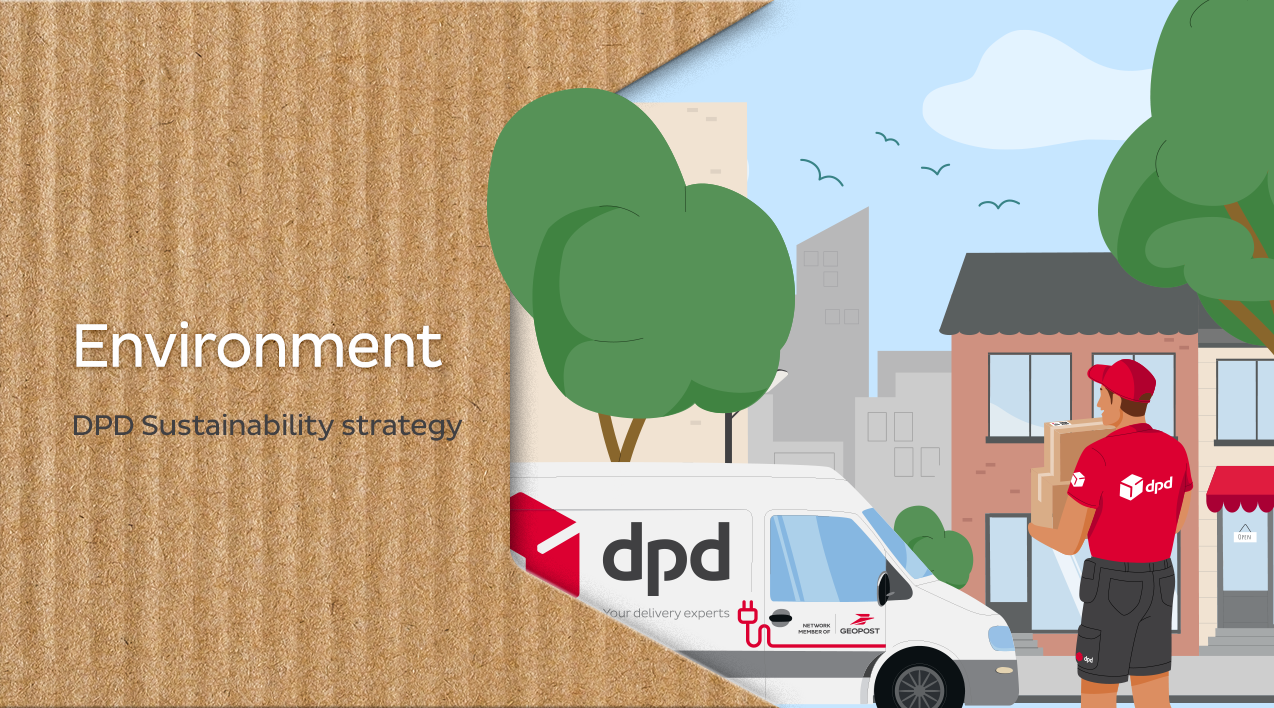


Commitment to achieving zero emissions
We're the pioneering group among global delivery companies when it comes to adopting science-based climate-change reduction targets (SBTi). This initiative aims to align our efforts with scientific consensus, limiting global warming to 1.5 °C above pre-industrial levels, as outlined in the Paris Agreement.
At the level of the Geopost group, we've set an ambitious target of achieving net-zero emissions by 2040, signifying our enduring commitment. By 2030, we aim to slash CO2 emissions by 43%, and by 2040, by 90%. The remainder will be offset through investments in environmentally beneficial projects.
To realize this objective, we've outlined four key areas for emissions reduction: electrification of our own and service fleets, adoption of alternative fuels, and integration of renewable energy sources.
Commitment to achieving zero emissions
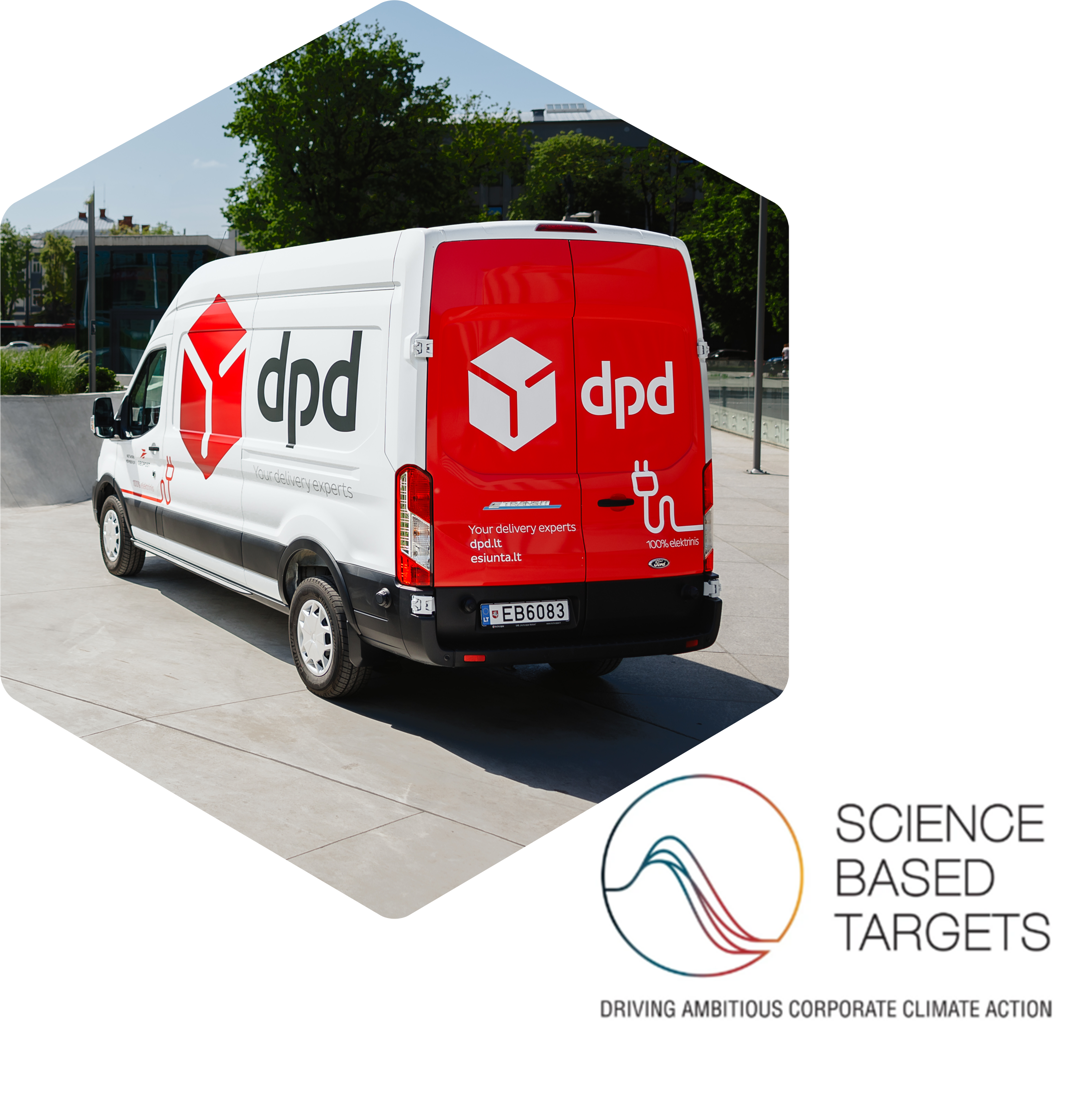

We're the pioneering group among global delivery companies when it comes to adopting science-based climate-change reduction targets (SBTi). This initiative aims to align our efforts with scientific consensus, limiting global warming to 1.5 °C above pre-industrial levels, as outlined in the Paris Agreement.
At the level of the Geopost group, we've set an ambitious target of achieving net-zero emissions by 2040, signifying our enduring commitment. By 2030, we aim to slash CO2 emissions by 43%, and by 2040, by 90%. The remainder will be offset through investments in environmentally beneficial projects.
To realize this objective, we've outlined four key areas for emissions reduction: electrification of our own and service fleets, adoption of alternative fuels, and integration of renewable energy sources.
Priorities
Climate change
-
We aim to implement proactive and systematic measures that significantly contribute to mitigating climate change.
We will consistently conduct inventories and monitor greenhouse gases across Scopes 1, 2, and 3, ensuring that by 2040 our net Scope 1 and 2 emissions reach zero.
Transport pollution
We will consistently monitor and mitigate transportation emissions, progressively increasing the proportion of electrified vehicles in our fleet. Through the modernization of our older fleet, we aim to ensure compliance with EURO6 standards. Furthermore, we will actively explore the expansion of alternative fuel options, including hydrogen and the integration of biofuels.
Electric fleet
DPD now delivers shipments using electric vehicles in five cities across Lithuania. Our fleet boasts 72 electric vehicles, bringing more sustainable transportation to Vilnius, Kaunas, Klaipėda, Šiauliai, and Panevėžys. This transition is projected to reduce environmental pollution by approximately 330 tons annually.
Electric fleet
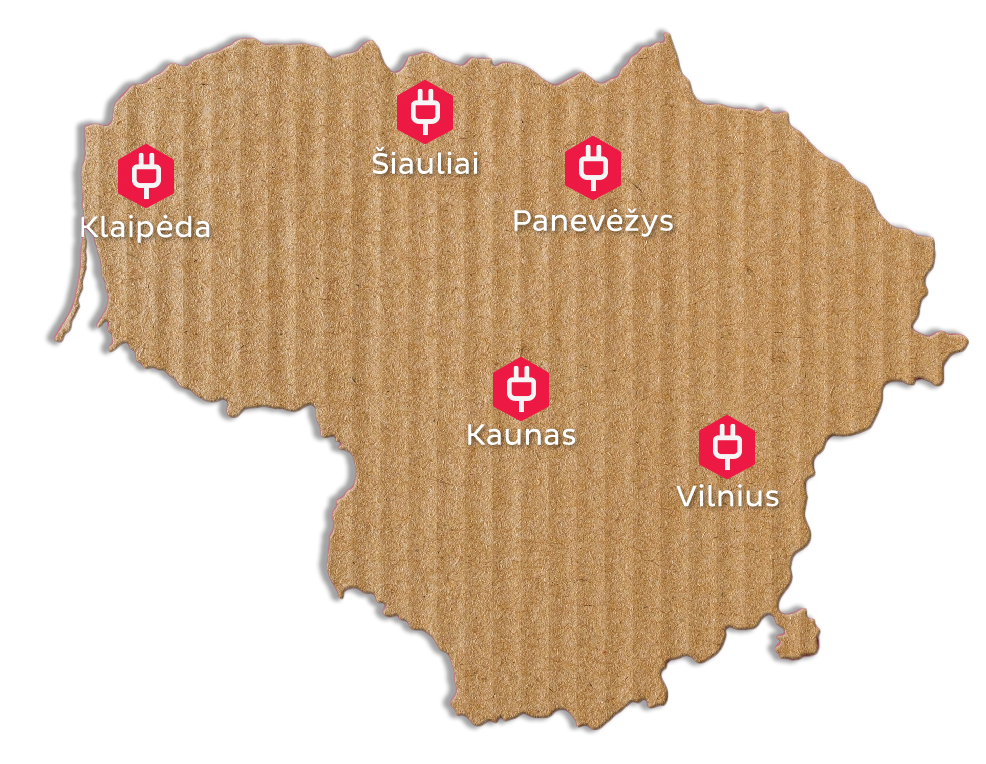

DPD now delivers shipments using electric vehicles in five cities across Lithuania. Our fleet boasts 72 electric vehicles, bringing more sustainable transportation to Vilnius, Kaunas, Klaipėda, Šiauliai, and Panevėžys. This transition is projected to reduce environmental pollution by approximately 330 tons annually.

Electric Fleet in Vilnius
- Since October 2021, vehicles have been cruising the streets of Vilnius, replacing our diesel fleet in the capital with an electric one. Today, the electric fleet consists of 68 electric cars.
- We have installed a total of 65 charging stations for electric vehicles at the parcel distribution terminal in Vilnius.
- The decision to invest in electric vehicles reflects DPD Lietuva's commitment to fostering environmentally friendly business practices. Therefore, residents of Vilnius who prioritize the planet's future can now receive parcels while being environmentally conscious.
- The project received support from the "Climate Change Programmes Funds" coordinated by the Environmental Projects Management Agency under the Ministry of Environment.
Air quality monitoring
To identify the most polluted areas in Vilnius and drive positive change in urban air quality, we partnered with JUDU on a pilot initiative called “Breathe.” Throughout the project, we measured air pollution levels in the city, focusing on fine particulate matter (PM2.5). Many DPD electric vehicles were equipped with air quality sensors that provided real-time data. This allowed residents of Vilnius to see which neighborhoods had the cleanest air — and where air quality was a cause for concern.
Air quality monitoring
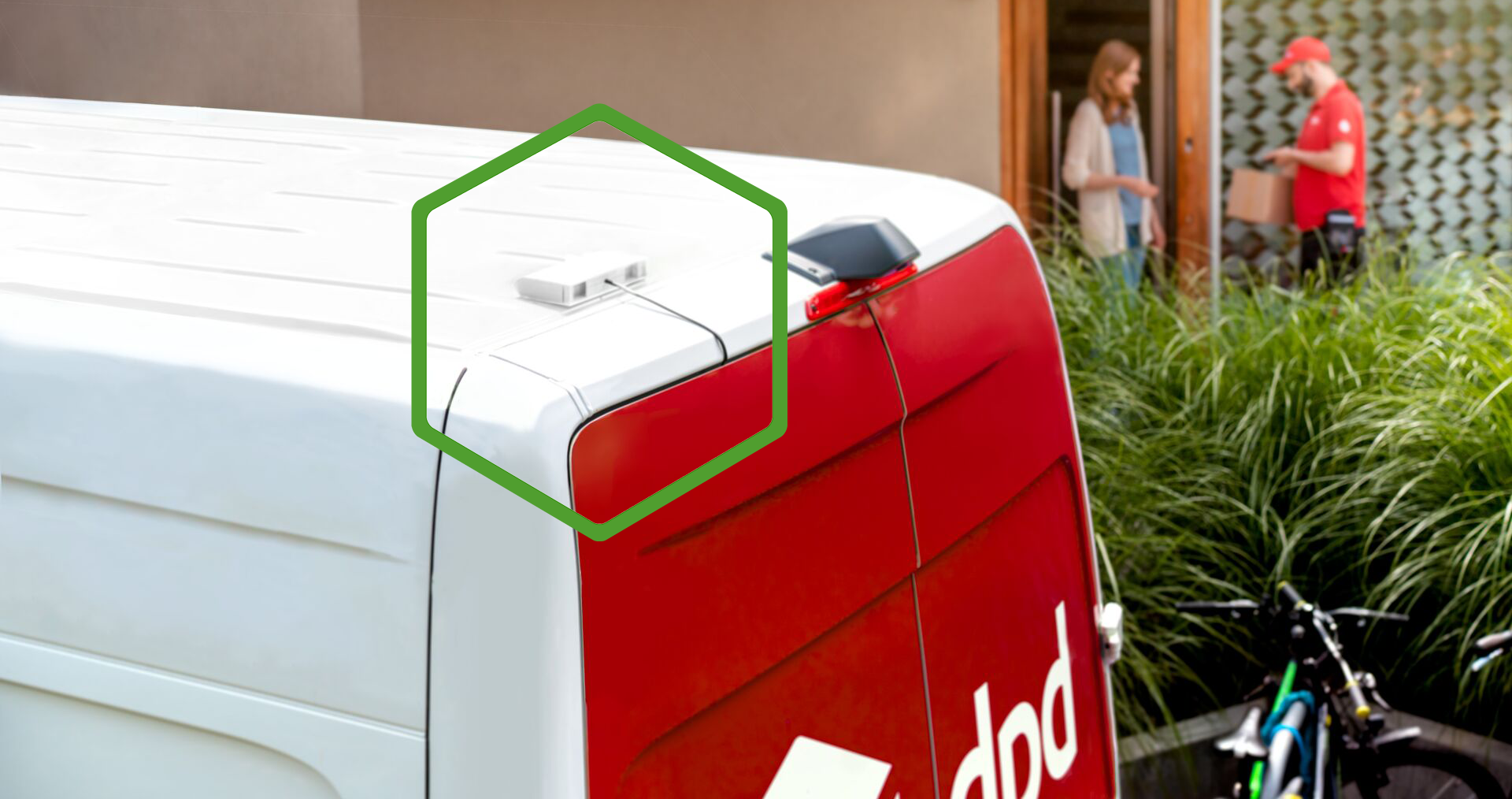

To identify the most polluted areas in Vilnius and drive positive change in urban air quality, we partnered with JUDU on a pilot initiative called “Breathe.” Throughout the project, we measured air pollution levels in the city, focusing on fine particulate matter (PM2.5). Many DPD electric vehicles were equipped with air quality sensors that provided real-time data. This allowed residents of Vilnius to see which neighborhoods had the cleanest air — and where air quality was a cause for concern.
More than 400 lockers
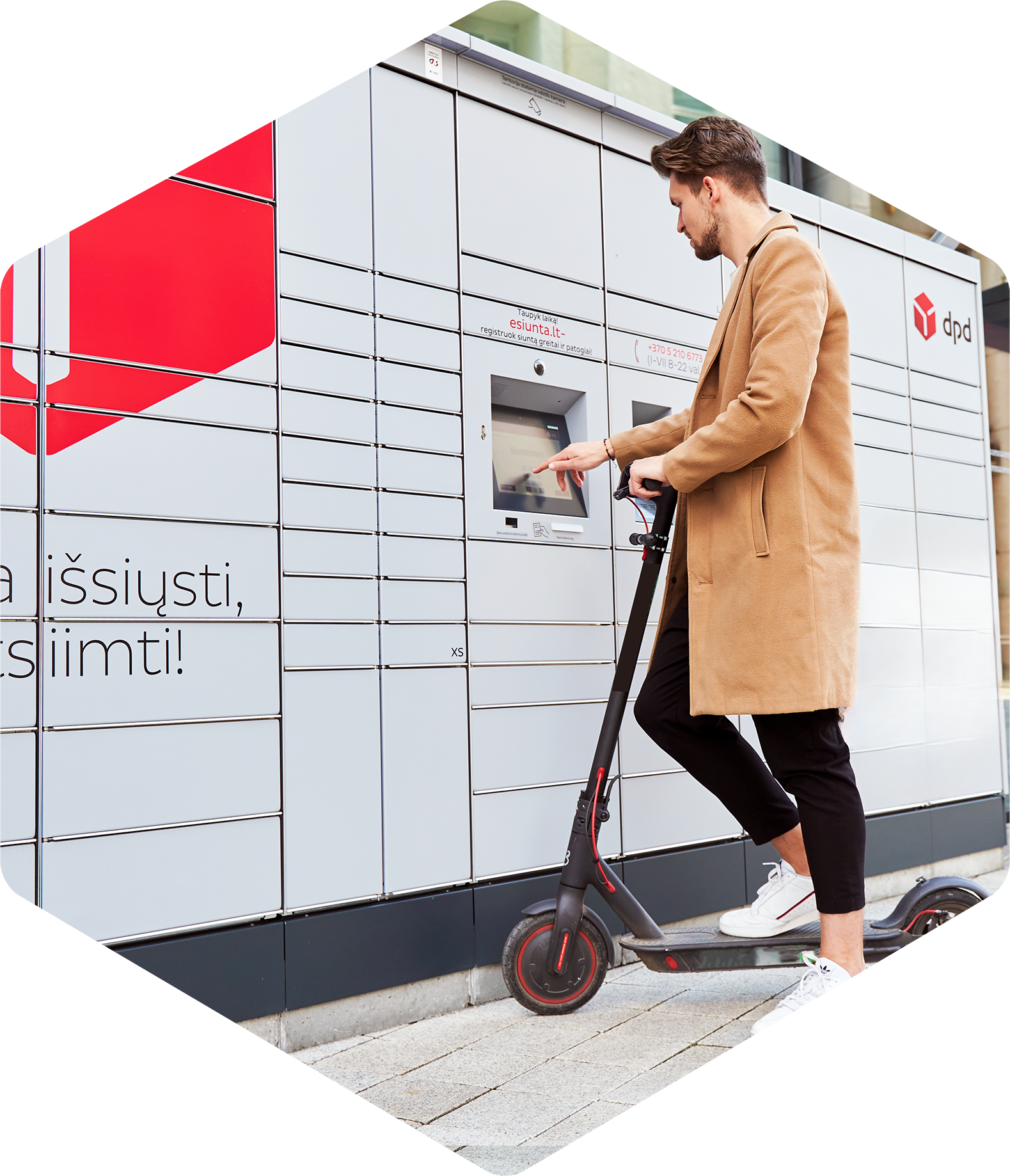

More than 400 lockers
Parcel lockers - a more environmentally friendly way to deliver packages. Delivering packages to parcel lockers emits less CO2 compared to door-to-door delivery. During a single trip, the courier can deliver more packages to one location, which means fewer trips and stops overall. This reduces the total number of kilometers driven, fuel consumption, and consequently carbon dioxide emissions.
Climate Workshops: Knowledge into Action
“Climate Fresk” is an internationally recognized interactive workshop designed to engage participants through collaboration and structured dialogue. Involving employees in sustainability efforts is a key component of responsible business practice, and innovative tools such as this enable meaningful participation. As part of our ongoing commitment to environmental stewardship, we regularly organize workshops focused on the climate system. These sessions cultivate a culture of sustainability within our organization, promote informed discussion, and encourage a deeper understanding of the complex challenges posed by climate change.
Climate Workshops: Knowledge into Action


“Climate Fresk” is an internationally recognized interactive workshop designed to engage participants through collaboration and structured dialogue. Involving employees in sustainability efforts is a key component of responsible business practice, and innovative tools such as this enable meaningful participation. As part of our ongoing commitment to environmental stewardship, we regularly organize workshops focused on the climate system. These sessions cultivate a culture of sustainability within our organization, promote informed discussion, and encourage a deeper understanding of the complex challenges posed by climate change.
Home / Our company / Sustainability / Environment

